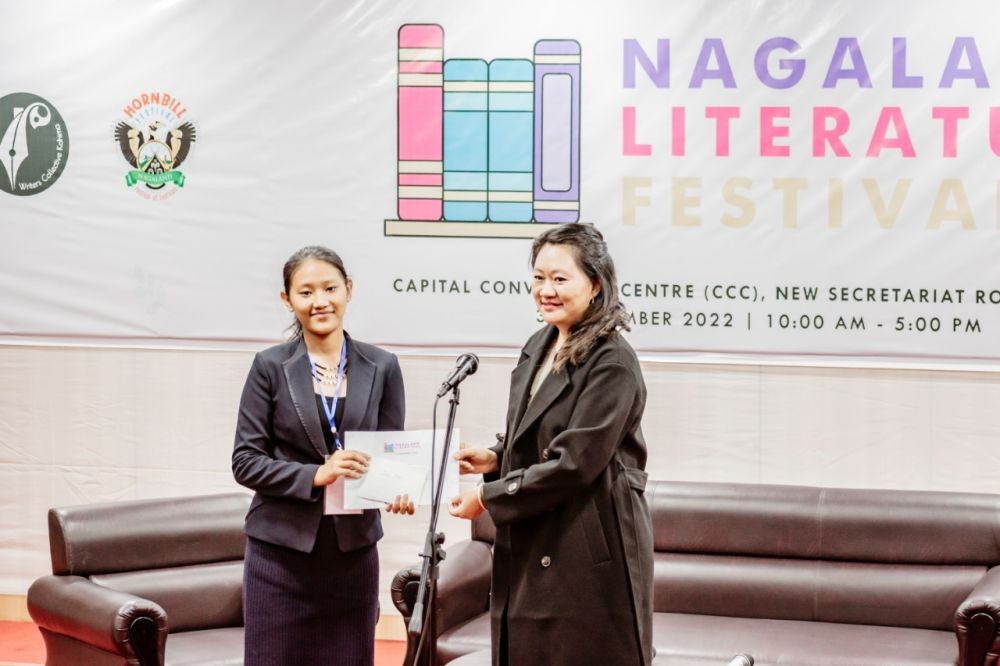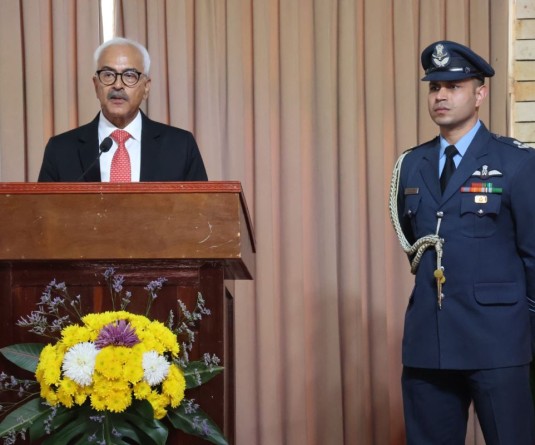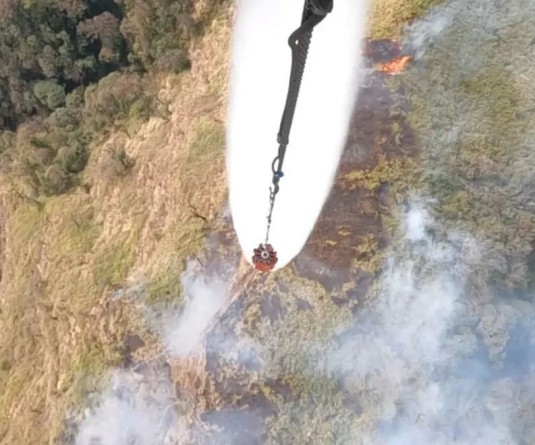As part of the second edition of Nagaland Literature Festival, a spoken word competition was also held wherein Senthanro Khuvung was adjudged the winner. She received a cash prize of Rs.10,000. Akavi won the second prize while Anuka L Chophy won the third prize. They received a cash prize of Rs.8000 and Rs.5000 respectively. Judges for the competition included T. Keditsu, Emisenla Jamir and Renthunglo Shitiri.

Morung Express News
Kohima | December 4
Stating that Naga Literature in English is quite unique, Literary Critic, Kevileno Sakhrie said that when we look at our scene, Naga literature in English is defined by the writings of 4 Naga writers namely, Easterine Kire, Temsula Ao, Monalisa Changkija, and Nini Lungalang, whom she described as “the big 4”, who were all women and is a circumstance of great significance.
She was speaking on a panel titled “Literary Trends in Nagaland” during the 2nd second edition of Nagaland Literature Festival organised by Writers Collective, Kohima at Capital Convention Centre on December 3. The other panellists comprised of Vizovono Elizabeth and Asangla Tzüdir with Rukulu Kezo Puro as moderator.
While literary writing in English in Nagaland is not very old, she said, coming from a community with oral tradition and culture, this has defined us and still continues to define us even in the process of imaginary and creative writing transition.
She also noted that the reliance on oral literature is still there and further observed that there has been a blend of history and imagination wherein the role of Naga women has created strong vocal women characters, which is a reflection of the individual life of the authors themselves. “They have shaped the literary identity of the Naga indigenous community”, she added.
When it comes to writing, Asangla Tzüdir remarked that, “very interestingly, in Nagaland, male writers usually write about culture, tradition, politics while women writers are more into creative writing.” In the rise of women writers, she also observed that there is a very profound idea of indigenous women writing feminism.
“These young writers have carried forward what the four Naga women writers have started”, she noted and went on to state that “writing is an individual as well as a collective responsibility.”
Vizovono Elizabeth spoke about issues and challenges while also highlighting the difficulty of writing about our communities. In the meantime, she asserted that “it is equally important to learn to do things the right way since writing and publishing is new for us and all of us are still learning.” While documenting stories of the community, she further emphasized on engaging in the concept of the Naga identity and also to search for an authentic sense of self in the midst of a lot of confusion.
On the other hand, with getting published is becoming a trend, she further pointed out that aspiring writers need to know the intricacies involved in getting one’s work published. In this regard, she also emphasized on “good editing” of one’s work before it is published.
“We should not get swayed by trends and try to keep up with others by leaps and bounds, but have the patience, and learn to do things the right way”, she asserted.
In Transition: ‘Writing Northeast’
Noted Assamese author, translator and columnist, Mitra Phukan remarked that our societies are all in transition while expressing that, “in the world today, nobody is settled and we are all in transition and we should be.” “Not to be in transition is to become a fossil. It is to die”, she said.
Participating as a speaker in the panel ‘Writing Northeast’, she also put across that “transition, in a way inspires” while elaborating that “the kind of world I grew up in and the kind of world that exists today is different. “The fact that the world is so collective today compared to as what was then, is definitely an inspiration”, she added while articulating that “I take inspiration from people and how they react to the changing world.”
Padma Shri awardee & recipient of the Sahitya Akademi Award 2017, Mamang Dai observed that “we deal with folklore, legends, and myths of the past mainly because of the oral tradition, and also because we don’t have a writing script.” But she noted that the inspiration is going to go beyond myths, legends and folklore.
“Literature will also be reportage, media, journalism, records, research work”, she pointed out while stating that all of these are happening in the northeast. She further impressed upon that this includes language and the narrative while putting across that “we are making all these languages evolve”. “I think this is a very interesting time and in fact, an inspiring time for young writers and also ageing writers”, she added.
Poet & Politician, Mmhonlümo Kikon felt that the drive for curiosity is something which forms the basis of any writer’s attempt to reach out and communicate. “Curiosity for people who write is important because any writer is first, an avid reader”, he said.
Substantiating to this, he expressed that, “so, when you read, you are sensitive to the ideas, the thoughts and issues, whether it is in the form of poetry, novel or nonfiction.”
He further noted that “the expanse of the entire theme of ‘Writing Northeast’ is so vast that if you look at it, you won’t even find records of what happened in the 14th century”, which is true for many communities. It is only recent that we have started writing extensively, he also observed in this regard.
The panel was moderated by Manngai H Phom, Assistant Professor at Tetso College, who is also a Research Scholar at Faculty of Languages and Literature, Cotton University, Guwahati.
‘After Babel’
Observing that with the recent surge of interest in writing and publishing, the literary scene in Nagaland has shifted and expanded significantly, a panel discussion on ‘After Babel’ was also held with Konaei Shongdok and Thejangunuo Theünuo as panellists and Beni Sumer Yanthan as moderator.
Konaei Shongdok is the author of “Once Upon a Time in Kohima” and “Shula”- A Phom novella while Thejangunuo Theünuo authored “Akezisuo Mu Puo Puotsa”, stories of her father and his grandfather in Tenyidie.
With most writers using English as their preferred mode of communication, the panel deliberated on the experiences of writing in the local language and also delved on the future of regional languages in the light of the current literary wave.
Under the growing trend of Naga writers writing in English, ‘After Babel’ engaged in conversations around the importance of regional languages, the issues surrounding translations and the reading audience, and the pressing need to promote and encourage writers and readers to continue to create literary works in the language of one’s own.





